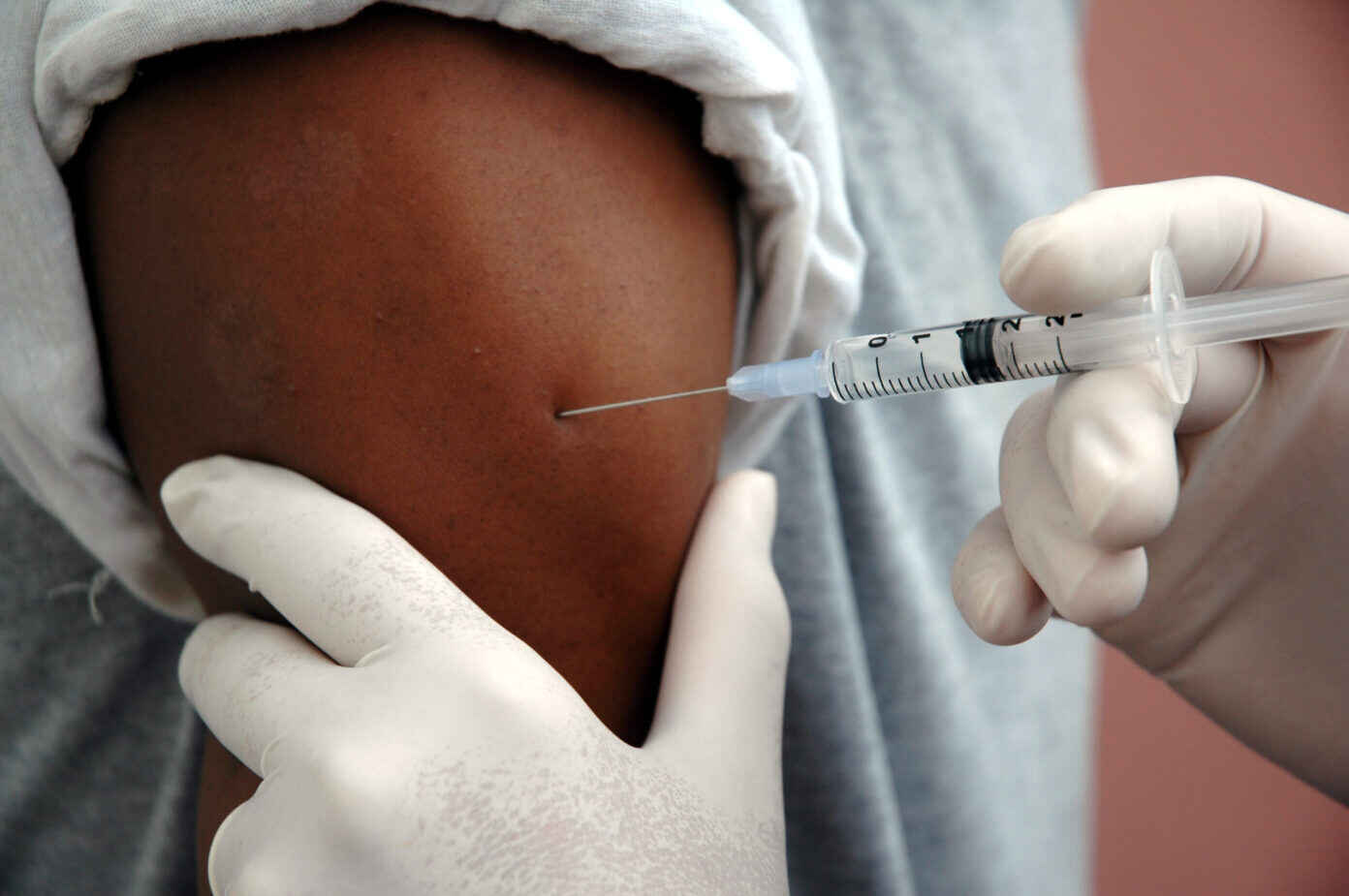Structural Racism May Negatively Impact COVID-19 Vaccination Rates among Black Americans
August 20, 2020
Overview
The COVID-19 pandemic has further exposed the structural inequalities that Black Americans experience in this country. Black people are more likely to have pre-existing conditions that lead to COVID-19 susceptibility and are more likely to be uninsured or have inadequate insurance coverage compared to white people. These structural inequalities, combined with incidences of medical racism, including reports of Black people being turned away from hospitals, have contributed to the shockingly high rates at which Black people have died from COVID-19.

In light of America’s long history of anti-Black racism, particularly by the medical community, a question that must be asked is whether Black people, the group most adversely impacted by the virus, will elect to get the coronavirus vaccine once one is developed. An AP-NORC poll revealed that only 25 percent of Black people are willing to get the vaccine, compared to 37 percent of Latino people and 56 percent of white people. Much of the Black community has retained a well-founded distrust of the medical industry that dates back to slavery.
When Africans were first stolen from their land and brought to this country, the idea of Black people as subhuman was promulgated as a means to justify slavery and aid in subjugation. This was also used by white people as justification to engage in a long history of experimentation and testing on Black bodies. Enslaved people were purchased or rented for medical experiments, and sometimes mutilated without pain relief in the name of medical progress. The experimentation continued after slavery, with the most notable example being the Tuskegee experiments where Black men who thought they were being treated for a blood disorder were actually being injected with syphilis in order to test the effects of untreated syphilis.
Racist ideologies and practices still permeate medicine today, including the belief that Black people don’t experience pain the same way white people do. A PNAS study showed that 40 percent of first and second year medical students thought Black people had less sensitive nerve endings and thicker skin, and therefore did not experience as much pain as white people, a false belief that leads to inadequate treatment. Additionally, Black people experience longer wait times, are less likely to receive well-tolerated medications, and experience higher rates of missed diagnoses for many conditions.
Given the grotesque history of the treatment of Black people in medicine and contemporary occurrences of medical racism, it is no surprise that many Black people would be wary of a COVID-19 vaccine. However, medical professionals can take steps to build trust with the Black community, including:
- Affirm and acknowledge the distrust in treatment and include this in the medical school curriculum as a means of trauma-informed care.
- Make information regarding how vaccines are tested and distributed easily accessible to communities.
- Use law to hold health institutions accountable for the care they provide Black people.
These are, by no means, immediate solutions to address the long-standing issues of medical racism and current distrust surrounding the COVID-19 vaccine. However, this can be a start in correcting the centuries of medical racism inflicted upon the Black community.
This post was written by Jasmine Smith, legal fellow, Network for Public Health Law—Southeastern Region Office.
The Network for Public Health Law provides information and technical assistance on issues related to public health. The legal information and assistance provided in this document do not constitute legal advice or legal representation. For legal advice, readers should consult a lawyer in their state.
Support for the Network is provided by the Robert Wood Johnson Foundation (RWJF). The views expressed in this post do not represent the views of (and should not be attributed to) RWJF.
